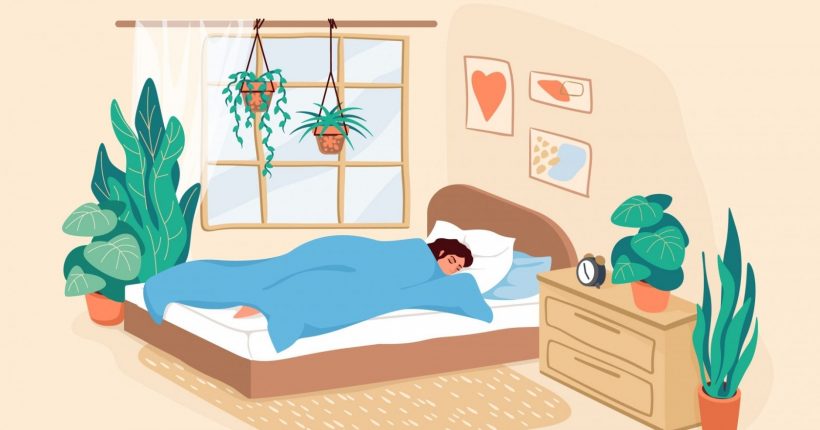Everyone makes these same mistakes when they can’t sleep, according to sleep expert Stephanie Romiszewski.
There’s nothing worse than finding yourself unable to fall asleep at night. Except, of course, for the crushing wave of exhaustion that comes the morning after a night of tossing and turning for hours on end.
It’s little wonder, then, that we are all obsessed with getting enough shut-eye. In fact, our fascination with sleep tracking is now so acute that psychologists have coined the term ‘orthosomnia’ to refer to it.
You may also like
“How can I sleep better when I’m working nightshifts?” – a sleep expert answers your questions
In our seemingly endless quest to find the recipe to a perfect night’s sleep, though, it seems we’ve been making more than a few mistakes along the way.
Here, Stephanie Romiszewski – aka @stephsleepyhead, the leading sleep physiologist, insomnia and CBTi expert at the Sleepyhead clinic in Exeter – underlines the sleep myths we need to stop buying into, stat.

Don’t change your bedtime routine
“If you’ve only just started experiencing sleeplessness, you shouldn’t start doing anything differently: instead, just concentrate on whatever makes you feel better.
“For example, if you’re going through something stressful at work and it’s disrupting your sleep slightly, you need to remember that it’s normal for your sleep to get disrupted. Actually, it’s almost healthy, because all your brain is doing is adapting to the situation. processing the information, and doing the things it needs to do to help you get through this.
“Unfortunately, most people will find it difficult to do nothing because we’re all educated quite poorly about medicine and sleep medicine. And so we start worrying that something terrible is going to happen to us if this sleeplessness continues, and we start changing our behaviour. We start napping, we start going to bed early, we start doing anything we can do to try to allow our bodies more time to rest.
“What this does, though, is move us away from our natural sleep routine, and teaches our brains that we don’t want a nice block of sleep at night time. So we’re actually training ourselves to have insomnia, which isn’t what we want.”
You may also like
“Could napping really make me a better runner?” – a sleep expert answers your questions
Don’t buy into the ‘perfect’ night’s sleep
“So many people, when they can’t sleep, strive to do all the right things: they don’t drink any caffeine, they don’t have any alcohol, they have a hot bath before bed, and they’ve got their sleep spray. Their environment’s perfect, they wind down immaculately, and yet they still can’t sleep.
“What gives?”
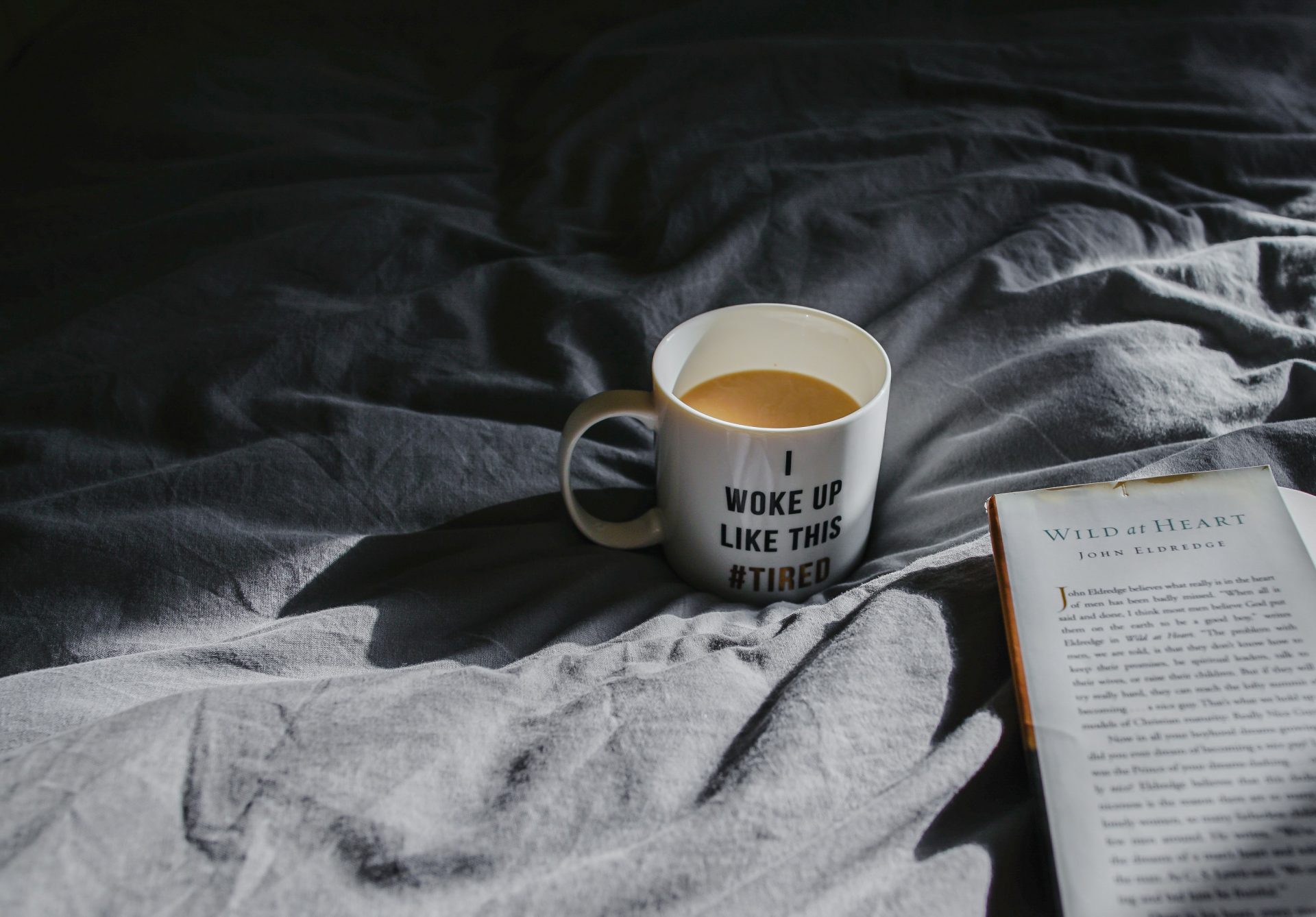
“Well, the thing I’d say to that is: how many good sleepers do you know that actually do all of this stuff? Because I can tell you that if someone’s a good sleeper, they probably don’t need to do any of that stuff to sleep well.
“So please, liberate yourself from that list of what you think you should do to get the best night’s sleep, because all it’s going to lead to is you becoming a bit obsessive about your sleep rituals. And it could also lead to an increase in anxiety and inadequacy when these things do not work for you.
“Plus, all those things are expensive, and it’s very likely they don’t actually work. There’s not much evidence at all.”
Don’t feel you have to turn to relaxation apps and aids
“Too many people are using relaxation apps, and trying to do anxiety reduction techniques, with the expectation that these things will lead to sleep. Now, none of these things are bad: actually, they’re good, but the expectation is wrong.
“If you’re using relaxation apps before you go to bed, then do expect to be relaxed. If you’re using anxiety reduction techniques, then expect to have your anxiety reduced. But please remember that the expectation that these things will help you to sleep has no scientific basis whatsoever.
“Some people might be religiously using relaxation apps, and they might hate it. They might even have a really bad association with it, but they’ve been told over and over again that they must do it, and so they start to feel inadequate and isolated from society because this thing that supposedly works for everyone else is not working for them.”
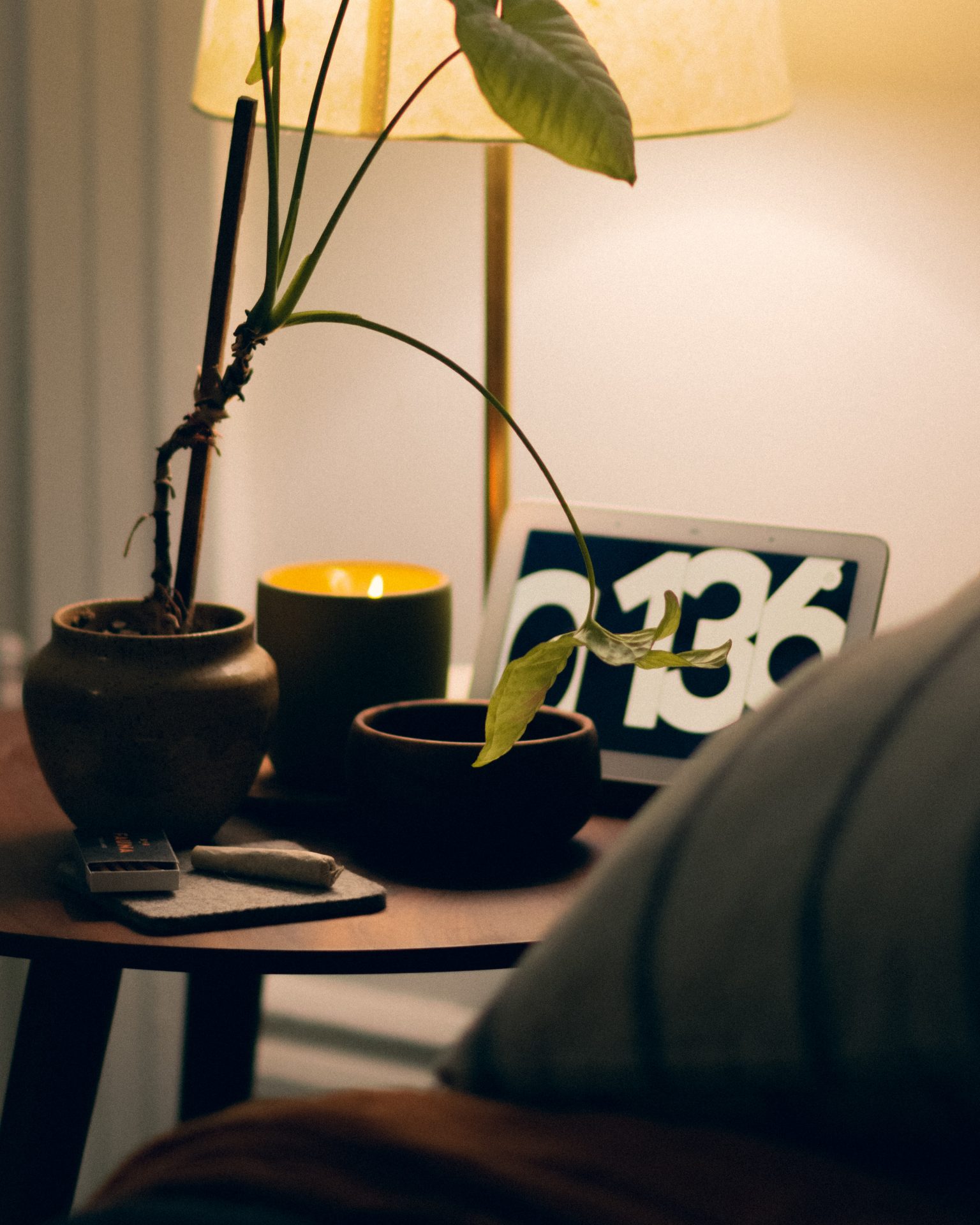
“Listen, if you do not have a strong sleep drive, which is exactly how we sleep, and it’s exactly what has been lost in most chronic insomniacs, then no amount of relaxation is going to help you sleep. If you have an association with a particular relaxation technique helping you fall asleep, it’s probably just an association.
“You most likely already have a strong sleep drive, and you just find it relaxes you enough to facilitate the sleepiness: it is not physically making you sleep.”
Don’t treat yourself to weekend lie-ins
“You need to strive to wake up at exactly the same time – and that means getting up and out of bed – every single day. And I really do mean every day, seven days a week, whether you’re working or not working.
“By doing this, you are telling your brain that the goalpost of morning wake time does not change. And this in turn means that your body will start to understand what it needs to do to make sure you’re functioning properly.
“It might seem a bit backwards to hope out of bed at 6am if you’ve had a bad night’s sleep, but trust me, you need to start waking at the same time every day. If you do this for long enough – say a few weeks at least – then you will slowly become a morning person.”
Don’t go to bed when you’re not sleepy
“You should only ever go to bed when you feel sleepy-tired, so give yourself permission to go to bed later if you need to. It is far better to get a shorter, richer quality sleep than it is to have a very long, eight-hour opportunity broken up by tossing and turning and constant worrying that you’re not getting enough sleep.”
You may also like
“How do I stay asleep?” A sleep expert answers your questions
Don’t stay in bed if you feel wide awake
“If you’re lying there stressed because you’re thinking, ‘Oh my God, if I don’t fall asleep now I’ve only got three hours,’ then you’ve got to get out of bed and leave the bedroom.”
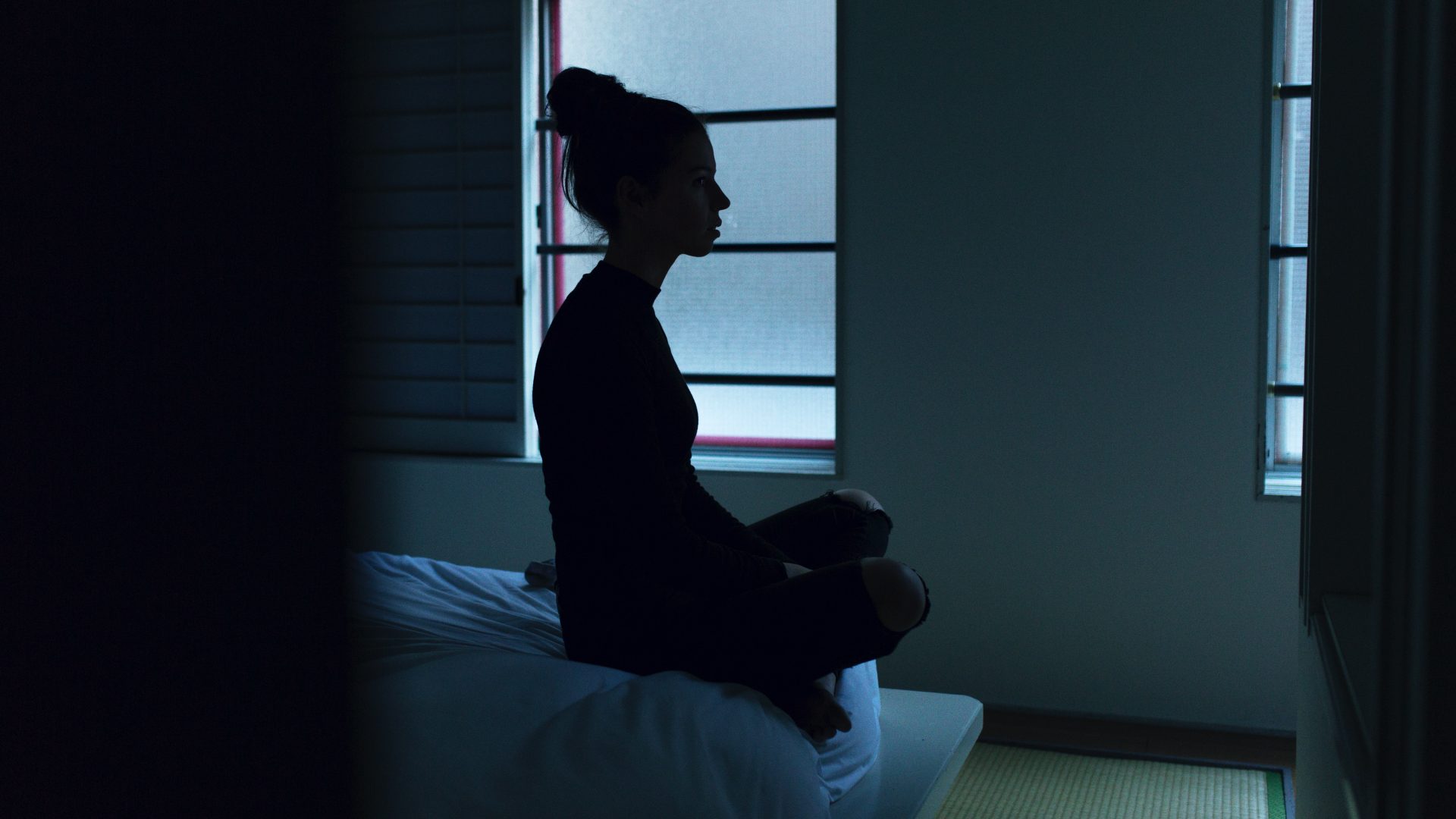
“Go and sit somewhere else, and just continue doing the things that you would be doing in the evening that you would to help you wind down.
“It’s much better to distract yourself like this, because anxiously lying awake in a pitch black room is never going to lead to sleep: instead, it will lead to anxiety and mental health issues.”
Don’t overcompensate for tiredness during the day
“We’ve got to build up that sensation of sleepiness to fix your sleep problems at night. So, yes, you’re gonna start feeling tired at the wrong time during the day, but I need you not to nap, or skip out on exercise, or cancel seeing your friends.
“Instead, I need you to think, ‘Amazing, this is working for me! I haven’t forgotten how to sleep. I’ve just got to build up this tiredness and keep it going until nighttime, and then I’m allowed to alleviate it.’”
You may also like
“Is a gratitude journal the secret to a better night’s sleep?” A sleep expert answers your questions
Don’t worry about what happens in the evening
“The most important thing you need to do is get plenty of bright light in the morning, because that has a bigger influence on your sleep habits than anything else.
“Yes, it’s true that if you aren’t winding down before you go to bed, and you’ve got all the screens blaring, you’re going to train your brain that you don’t want to go to bed yet. But if you’ve got a chronic sleep problem, then no amount of behaviour modification is going to suddenly fix your problem: in fact, it might just make you feel more stressed and anxious.”
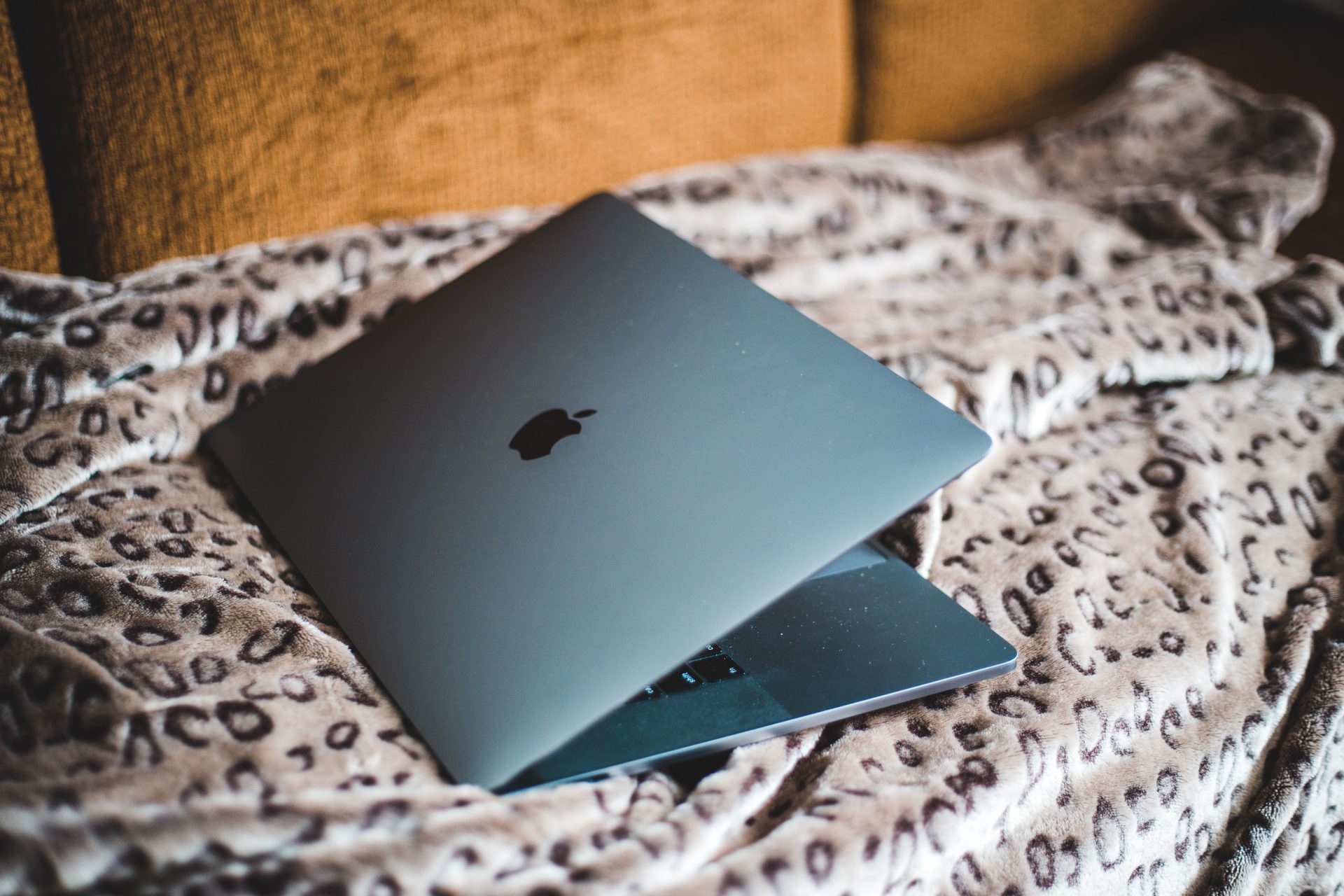
“What I’m saying is this: all good sleepers who want their sleep to be even better need to ditch the screens in the evening, chill out before bed, deal with their problems during the day, all that wonderful stuff.
“If your problem is over three months old, though, know that it might not have much of an impact.”
And don’t be such a stickler for the ‘sleep rules’
“We’re human beings, not bloody robots. We can’t be perfect every single day; variables change, your sleep changes, everything changes. Sometimes you’ll stay up late, sometimes you’ll drink coffee before bed, sometimes you’ll be out having a drink with your mates on a work night: that’s all OK.
“And remember, your brain is actually incredibly smart. If you’re feeling tired, then it will recognise this, and the next time it has a sleep opportunity, it will increase the quality and boost certain stages of sleep if it feels you need them… all without increasing the duration. So, if you wake up after five hours of sleep, don’t panic: your brain has done the work it needs to alleviate tiredness, so there’s no need to change all your behaviours!”
Want more practical advice on how to achieve better sleep? On Sunday 26 February 2023, we will be hosting The Stylist Restival – a part sleep spa, part workshop – and plenty of experts will be on hand to offer their tried-and-tested sleep advice.
General Admission ticket are £49, and includes sleep sessions, refreshments and a wellness bundle. VIP tickets, meanwhile, are £220 and include everything in the general admission ticket, plus an overnight stay at the Mondrian, dinner with some of our experts and some exclusive VIP sessions.
Book your place here.
Images: Getty/Mpho Mojapelo/Erik Mclean/Ben Blennerhassett/Patrick Perkins/Toa Heftiba
Source: Read Full Article
